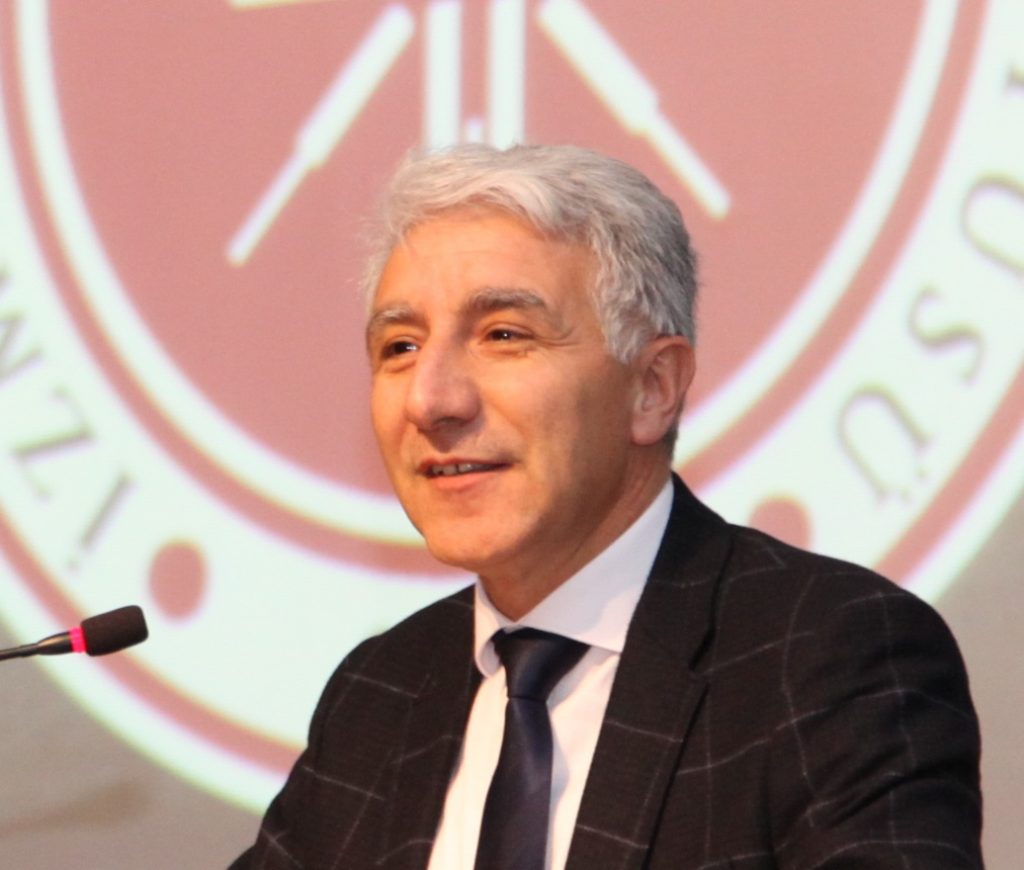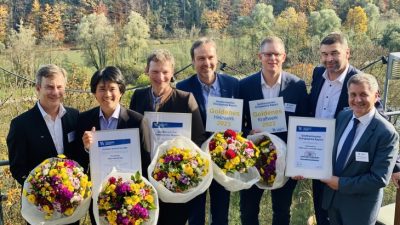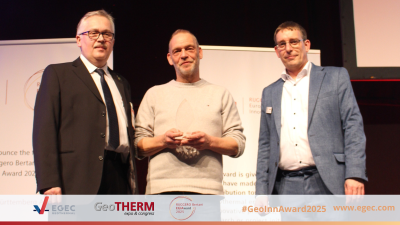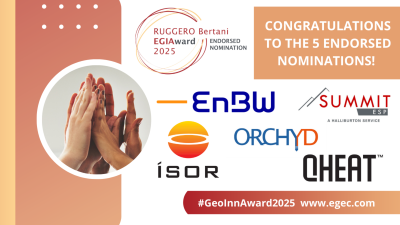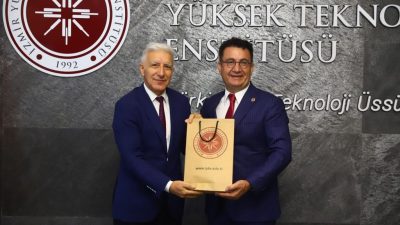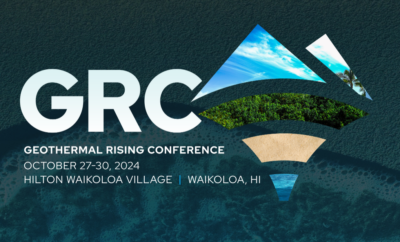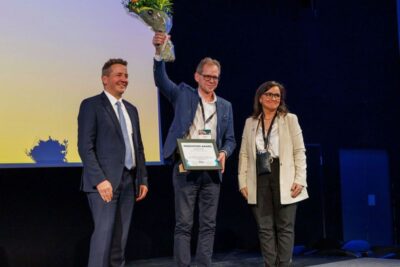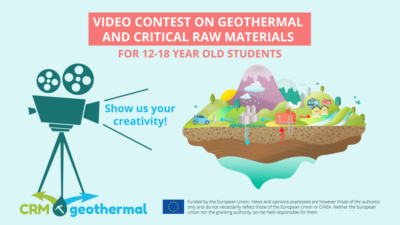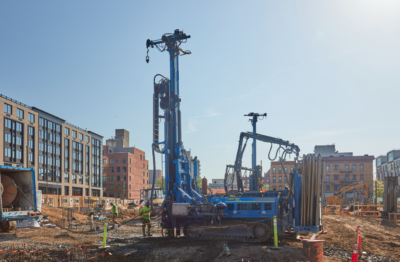Interview – Nomination for Ruggero Bertani 2022 Award, Prof. Dr. Alper Baba
In an interview, IZTECH Vice-Rector Prof. Dr Alper Baba shared the details of their projects in the 2022 final of the Ruggero Bertani European Geothermal Innovation Award.
In June 2022, EGEC will announce the final winner from the five confirmed nominees for the Ruggero Bertani European Geothermal Innovation Award 2021. Izmir Institute of Technology (IYTE) from Turkey and the project “Capture and use of CO2 as an inhibitor in the geothermal power plant” was awarded as one of the five finalists of this award. IZTECH Vice Rector Prof. Dr. Alper Baba, Dean of IZTECH Engineering Faculty Prof. Dr. Mustafa M. Demir and Tuzla Geothermal Inc. Manager Gonca Aksoy are in the team of the project, which aims to minimize crust formation in geothermal systems, reduce maintenance costs and increase energy efficiency.
Prof. Dr. Alper Baba shared the details of his work with us by answering his questions about the projects that carried them to the finals.
- Could you briefly talk about your project?
Geothermal energy is a sustainable energy source that provides electricity generation and direct use (urban heating, greenhouse cultivation, drying, health tourism, etc.) by using underground fluid resources at high temperatures and its use is increasing day by day.
In geothermal power plants, since the field fluid is very rich in minerals, the pressure and temperature decrease and the solubility of the mineral decrease as the fluid rise to the surface. The precipitation is uncontrolled and clogs the plant pipes over time. Prior techniques; It is based on the principle of cleaning the system with the application of water-based chemicals and antiscalants. Antiscalants are chemicals that are very costly and imported from abroad. Although these chemicals have the effect of reducing and dissolving encrustation, they cause corrosion in the fluid transmission line. Also, since they are synthetic chemicals, they are incompatible with nature.
The crusting formation mechanism occurs as a result of the separation of acidic CO2 gas from the system. The first studies were carried out by adding an organic acid (formic acid, which is a single carbon organic acid, HCOOH) to the system, whose structure is similar to CO2. This study was carried out at Tuzla Geothermal Power Plant in Çanakkale. In general, this practice was applied in some fields in the world. We also injected CO2, which is more effective than this chemical, into the fluid in order to minimize the problems in terms of more economic and environmental aspects. This chemical is from the acid family, which is environmentally friendly and least likely to corrode. As it prevents crusting, it also prevents crust formation. In addition, the use of carbon dioxide in the fluid in the system can be called a green technology because it reduces the carbon footprint.
- What are the important outputs of your project, and how and in which areas do you think you will help the sector?
Our project is a system that minimizes crust formation in geothermal systems, reduces maintenance costs, prolongs the life of system elements and increases energy efficiency as it prevents corrosion. Due to the reduction in the number of stops, both cleaning costs and the risk of corrosion are significantly reduced. As the system maintenance period is shortened, corrosion is prevented as a result of reducing exposure to oxygen. Currently, this application is successfully implemented in Tuzla GPP. National and international patent processes regarding this application have been initiated. In addition, the data obtained with formic acid at the project site was published in the journal Energy and Fuels, 2017, 31, 8489-8496, one of the most important journals of the American Chemical Society, and the first trials on the use of CO2 in the fluid were started in 2019, and the first findings regarding this were geothermal. Geothermics, 80; Published in 86-91. In 2021, this practice was completely implemented in Tuzla GPP.
- What were the factors that guided you in determining your project topic?
Both electricity and direct use of geothermal resources are increasing rapidly in the world. It is predicted that this source will be the most effective and widespread among renewable energies in the near future. The fluid in geothermal resources is rich in minerals, and temperature and pressure changes in this fluid create various problems in the systems. This causes serious economic losses. It is focused on the most effective methods to solve the problem. For this reason, the capture of CO2, which is an environmental problem in the world, and its use in different areas are extremely important both environmentally and economically. Today, CO2, which is risky in terms of climate, is used in important applications such as increasing the yield of plants in the beverage industry, fire extinguishers and greenhouses.
- How do you support and motivate your team on innovative projects?
Our researchers working on geothermal at ?zmir Institute of Technology carry out national and international projects both in the private and public sectors and with universities on the way to becoming Turkey’s gateway to the world. Currently, the use of geothermal fluid in agriculture with the project named GEO4FOOD, supported by TÜB?TAK, the project called REFLECT carried out within the scope of EU Horizon 2020, the geothermal fluid in Europe and minimizing the scaling problems in this fluid, the project called CRW, which is also supported by EU Horizon Europe, and the use of geothermal fluid in EU countries. carries out projects on the recovery of valuable minerals from fluids. In addition, all kinds of support have been provided for the applications of Tuzla Geothermal A.?. for many years in the Tuzla Geothermal Field, which is the most complex in terms of geothermal fluid in Turkey. The data we obtain from these projects becomes concrete and contributes significantly to both scientific output and the country’s economy. This shows that we need to work more.
- You will be evaluated together with 4 strong projects. Why do you think your project should be chosen and supported?
The capture of CO2, which is an environmental problem in the world, and its use in different areas are groundbreaking issues both environmentally and economically. This work, which minimizes crust formation in geothermal systems, reduces maintenance costs, extends the life of system elements and increases energy efficiency by preventing corrosion, is currently being implemented in Tuzla Geothermal Field. With this application, the number of downtimes has been reduced, and both cleaning costs and the risk of corrosion have been eliminated to a great extent. It has contributed to the country’s economy. Therefore, this study can be applied immediately to many sites with silica problems.
This award is a stamp of excellence applied to the smartest and most important ideas in research and industry that will play a key role in the future development of geothermal energy.
Source: Email correspondence via our Turkish language platform JeotermalHaberler
